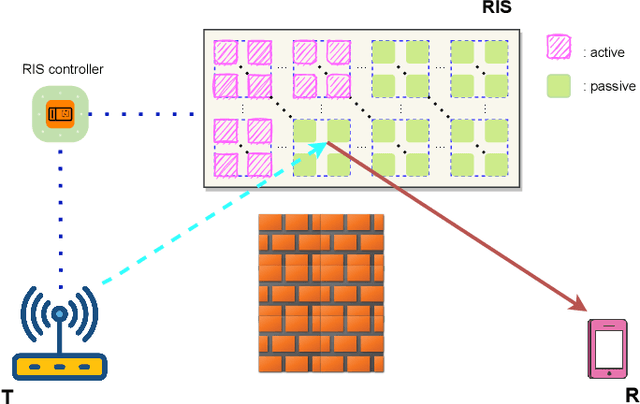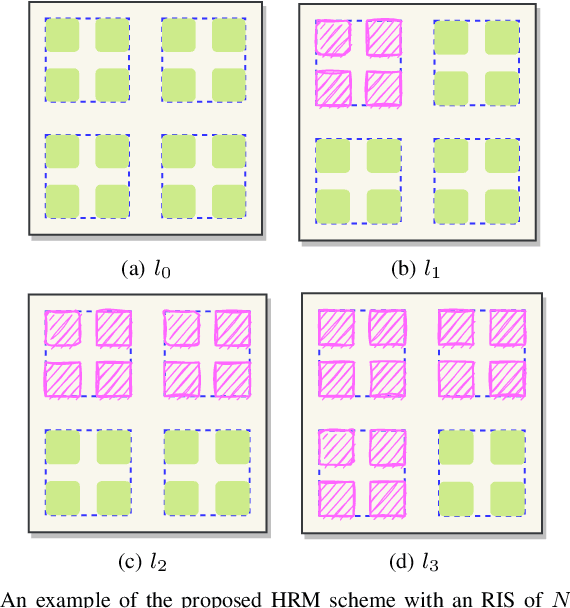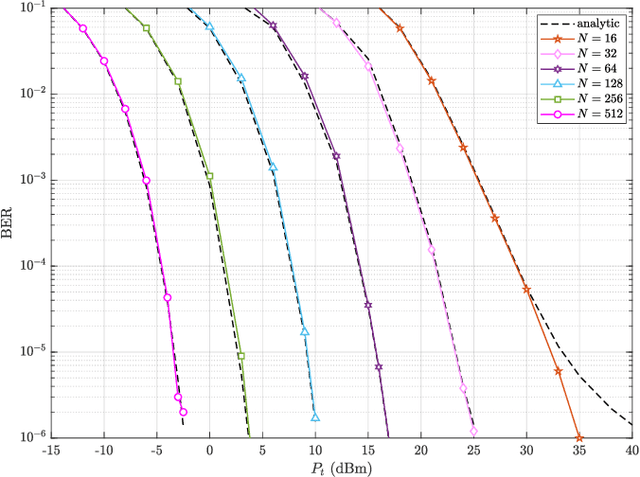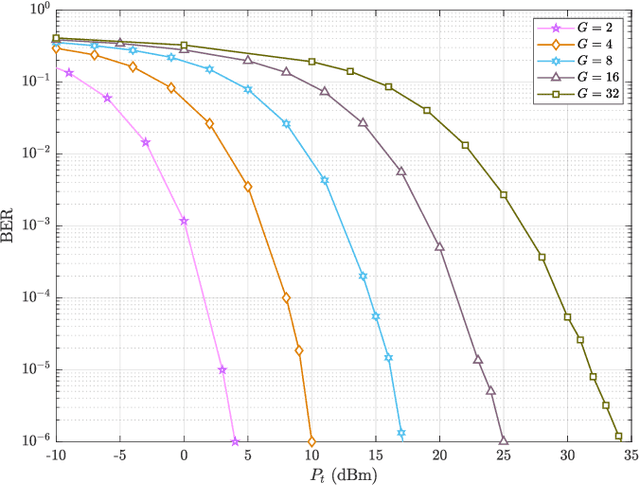Hybrid Reflection Modulation
Paper and Code
Nov 16, 2021



Reconfigurable intelligent surface (RIS)-empowered communication has emerged as a novel concept for customizing future wireless environments in a cost- and energy-efficient way. However, due to double path loss, existing fully passive RIS systems that purely reflect the incident signals into preferred directions attain an unsatisfactory performance improvement over the traditional wireless networks in certain conditions. To overcome this bottleneck, we propose a novel transmission scheme, named hybrid reflection modulation (HRM), exploiting both active and passive reflecting elements at the RIS and their combinations, which enables to convey information without using any radio frequency (RF) chains. In the HRM scheme, the active reflecting elements using additional power amplifiers are able to amplify and reflect the incoming signal, while the remaining passive elements can simply reflect the signals with appropriate phase shifts. Based on this novel transmission model, we obtain an upper bound for the average bit error probability (ABEP), and derive achievable rate of the system using an information theoretic approach. Moreover, comprehensive computer simulations are performed to prove the superiority of the proposed HRM scheme over existing fully passive, fully active and reflection modulation (RM) systems.
 Add to Chrome
Add to Chrome Add to Firefox
Add to Firefox Add to Edge
Add to Edge